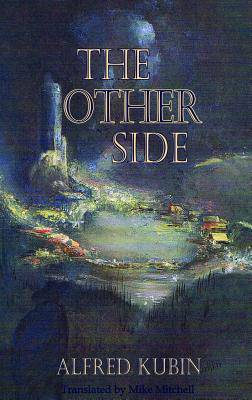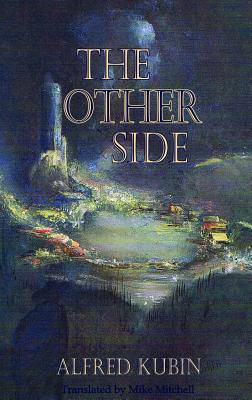
Bedankt voor het vertrouwen het afgelopen jaar! Om jou te bedanken bieden we GRATIS verzending (in België) aan op alles gedurende de hele maand januari.
- Afhalen na 1 uur in een winkel met voorraad
- In januari gratis thuislevering in België
- Ruim aanbod met 7 miljoen producten
Bedankt voor het vertrouwen het afgelopen jaar! Om jou te bedanken bieden we GRATIS verzending (in België) aan op alles gedurende de hele maand januari.
- Afhalen na 1 uur in een winkel met voorraad
- In januari gratis thuislevering in België
- Ruim aanbod met 7 miljoen producten
Zoeken
Omschrijving
The Other Side tells of a dream kingdom which becomes a nightmare, of a journey to Pearl, a mysterious city created deep in Asia, which is also a journey to the depths of the subconcious, or as Kubin himself called it, 'a sort of Baedeker for those lands which are half known to us'.
Written in 1908, and more or less half way between Meyrink and Kafka, it was greeted with wild enthusiasm by the artists and writers of the Expressionist generation.
' Expressionist illustrator Kubin wrote this fascinating curio, his only literary work in 1908. A town named Pearl, assembled and presided over by the aptly named Patera, is the setting for his hallucinatory vision of a society founded on instinct over reason. Culminating apocalyptically - plagues of insects, mountains of corpses and orgies in the street - it is worth reading for its dizzying surrealism alone. Though ostensibly a gothic macabre fantasy, it is tempting to read The Other Side as a satire on the reactionary, idealist utopianism evident in German thought in the early twentieth century, highly prescient in its gloom, given later developments. The language often suggests Nietsche. The inevitable collapse of Patera's creation is lent added horror by hindsight. Kubin's depiction of absurd bureaucracy is strongly reminiscent of Kafka's The Trial, and his flawed utopia, situated next to a settlement of supposed savages, brings to mind Huxley's Brave New World; it precedes both novels, and this superb new translation could demonstrate its influence on subsequent modern literature.'
Kieron Pim in Time Out
It will appeal to fans of Mervyn Peake and readers who like the darkly decadent, the fantastic and the grotesque in their reading.
Written in 1908, and more or less half way between Meyrink and Kafka, it was greeted with wild enthusiasm by the artists and writers of the Expressionist generation.
' Expressionist illustrator Kubin wrote this fascinating curio, his only literary work in 1908. A town named Pearl, assembled and presided over by the aptly named Patera, is the setting for his hallucinatory vision of a society founded on instinct over reason. Culminating apocalyptically - plagues of insects, mountains of corpses and orgies in the street - it is worth reading for its dizzying surrealism alone. Though ostensibly a gothic macabre fantasy, it is tempting to read The Other Side as a satire on the reactionary, idealist utopianism evident in German thought in the early twentieth century, highly prescient in its gloom, given later developments. The language often suggests Nietsche. The inevitable collapse of Patera's creation is lent added horror by hindsight. Kubin's depiction of absurd bureaucracy is strongly reminiscent of Kafka's The Trial, and his flawed utopia, situated next to a settlement of supposed savages, brings to mind Huxley's Brave New World; it precedes both novels, and this superb new translation could demonstrate its influence on subsequent modern literature.'
Kieron Pim in Time Out
It will appeal to fans of Mervyn Peake and readers who like the darkly decadent, the fantastic and the grotesque in their reading.
Specificaties
Betrokkenen
- Auteur(s):
- Illustrator(s):
- Vertaler(s):
- Uitgeverij:
Inhoud
- Aantal bladzijden:
- 249
- Taal:
- Engels
- Reeks:
Eigenschappen
- Productcode (EAN):
- 9781910213032
- Verschijningsdatum:
- 1/11/2014
- Uitvoering:
- Paperback
- Formaat:
- Trade paperback (VS)
- Afmetingen:
- 124 mm x 196 mm
- Gewicht:
- 217 g

Alleen bij Standaard Boekhandel
+ 29 punten op je klantenkaart van Standaard Boekhandel
Beoordelingen
We publiceren alleen reviews die voldoen aan de voorwaarden voor reviews. Bekijk onze voorwaarden voor reviews.









